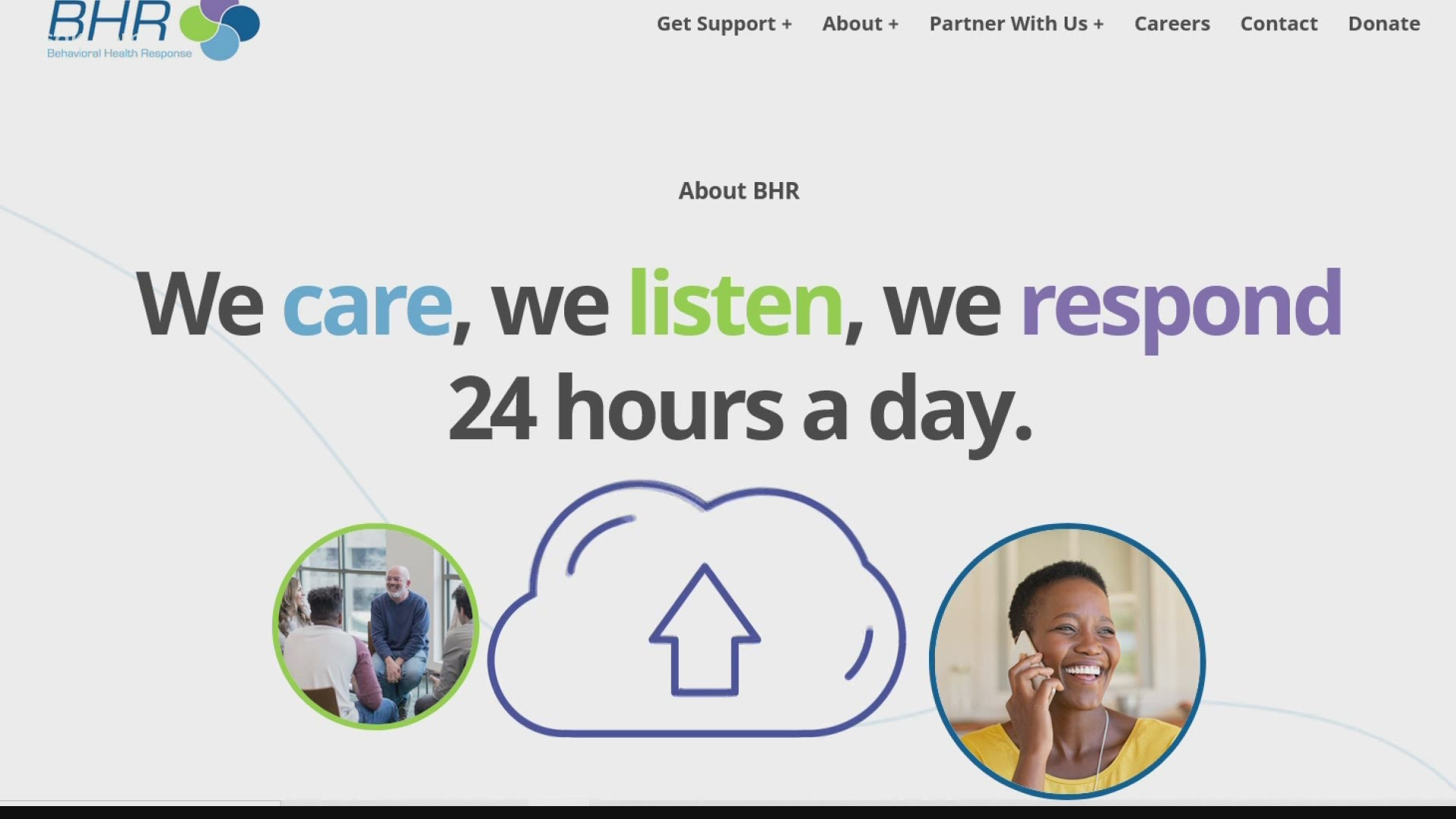ST. LOUIS — In these abnormal times, mental health advocates want to normalize conversations about feelings.
A recent analysis shows, mental health services for children nearly doubled when the pandemic hit and it remains high.
It shows in spring 2020, intentional self-harm, generalized anxiety disorder, major depressive disorder, adjustment disorders, overdoses and substance use disorders all increased for the age group 13-18.
Holly Nemec is the Community Relations Manager with Behavioral Health Response, also known as BHR.
BHR provides crisis support, telephone counseling, and mental health resources 24 hours a day, seven days a week.
Nemec said the analysis mirrors what's going on in the St. Louis region.
"We are seeing concerns of isolation, depressive symptoms, a lot of anxiety," she said.
The Executive Director of CHADS Coalition, Marian McCord, has also seen the uptick.
"There is a definite increase in kids having challenges with anxiety," she said.
The organization started in 2005 after McCord's son committed suicide.
Its mission is to save young lives by providing awareness and prevention of depression and suicide.
McCord and Nemec both say school is one issue piling onto children's stress.
BHR is also seeing a rise in substance use concerns.
"The substance use is a coping tool. The best way we can help youth is to teach them healthy, effective coping skills," Nemec said.
Seeing a professional could be a good outlet.
"That's the biggest roadblock as a society, we don’t feel it’s okay to talk a therapist or professional," McCord said.
Coping skills like breathing exercises or getting some fresh air are helpful.
"Mindfulness can rewire the brain to a healthy brain," Nemec said. "Practicing mindfulness five minutes a day over the course of three months becomes a habit and it can shift our perspective."
Nemec said if you practice gratitude for 30 seconds, it can also change your thoughts positively.
In these chaotic moments, Nemec reminds children that these feelings are a normal response. Our bodies may feel this, too, with headaches, upset stomachs, or heavy breathing.
"Our bodies are hard-wired to respond to stress. Kids who understand that are much less likely to develop any kind of post-traumatic stress symptoms," she said.
Creating a safe space for children is also key.
Nemec recommended talking to your children as early as possible to start labeling emotions. She said this will allow kids to better recognize those symptoms.
Nemec suggests, if parents notice abnormal behaviors, it may be time to seek additional help.
There are tools, resources, and people ready to lift some of that heaviness.
"The resources are there. It’s OK to tap into those resources. Let's start talking about this more because we all need to be part of the solution," McCord said.
To contact BHR, you can call them at 314-469-6644.
For CHADS Coalition, call 314-952-8274.
For a list of resources on adolescent mental health:

